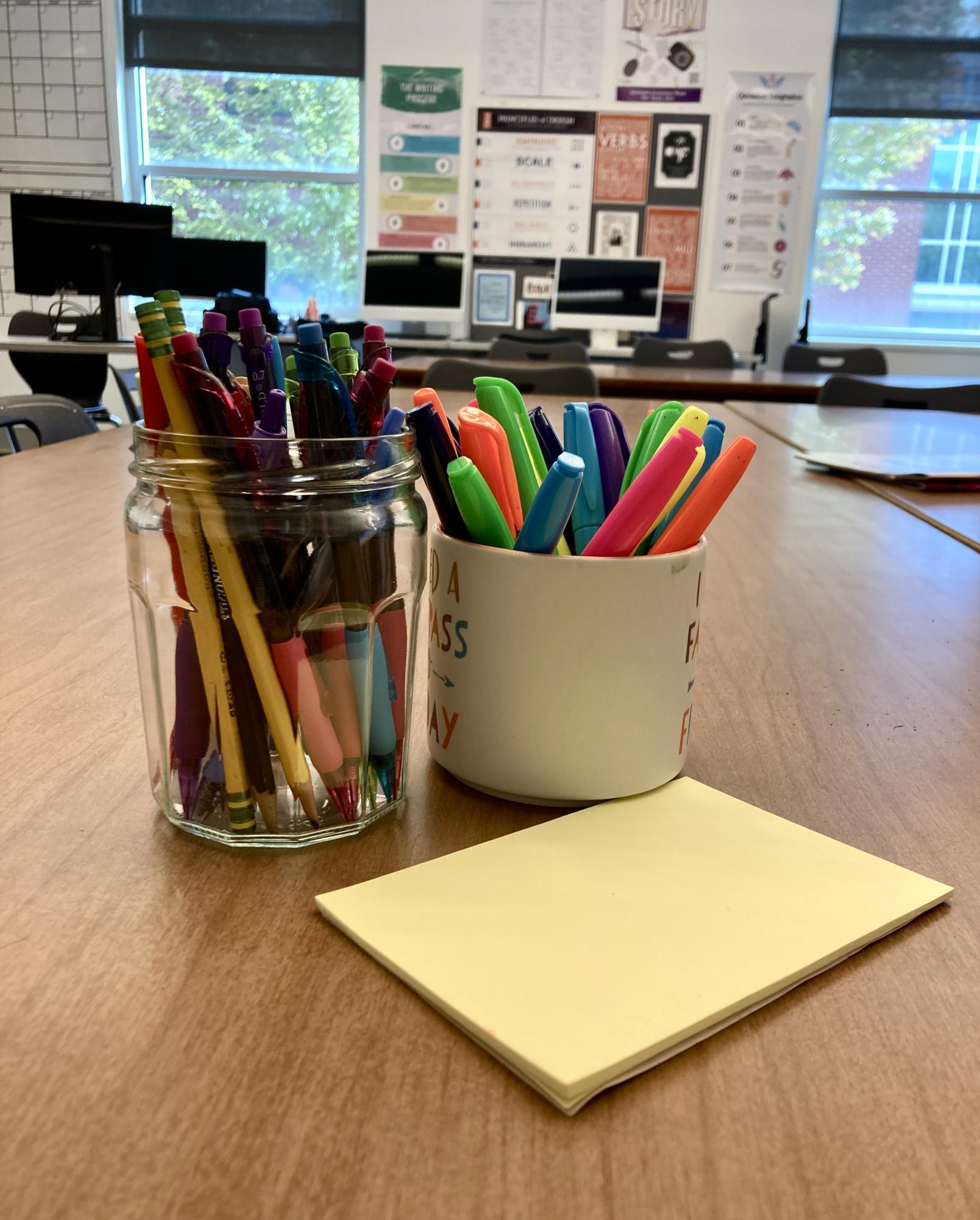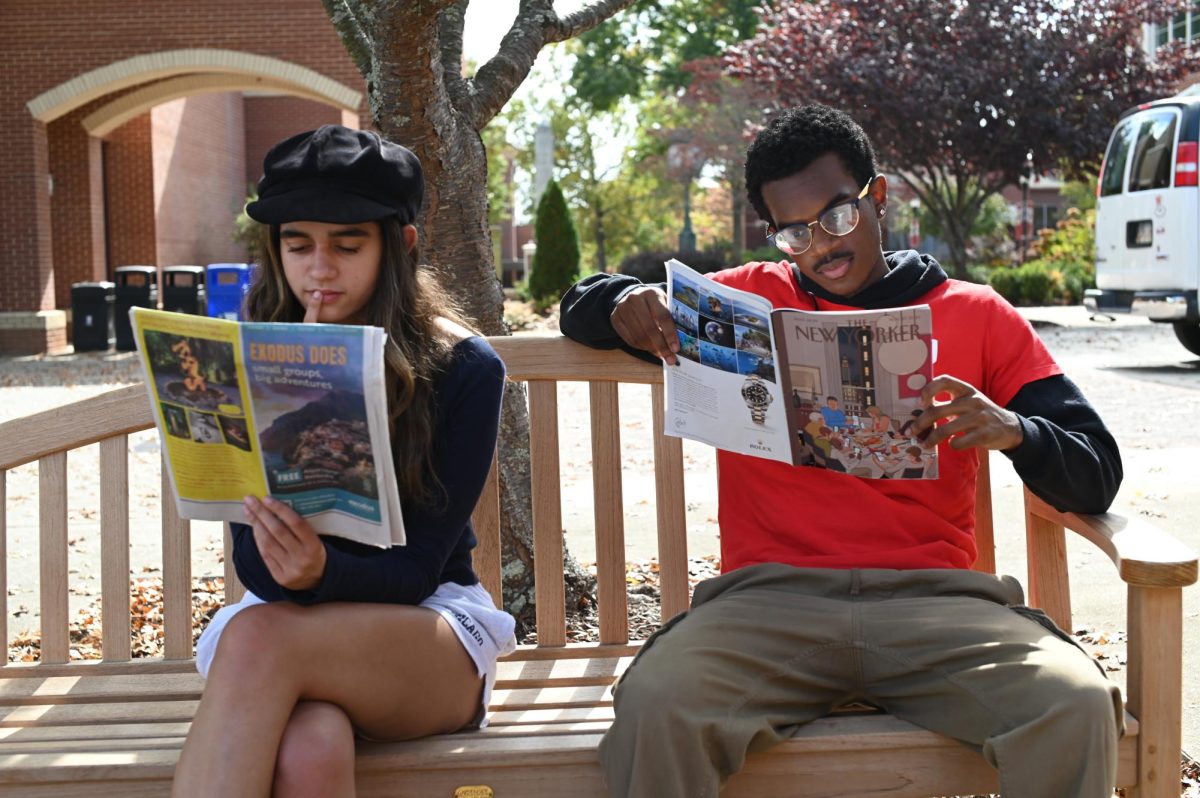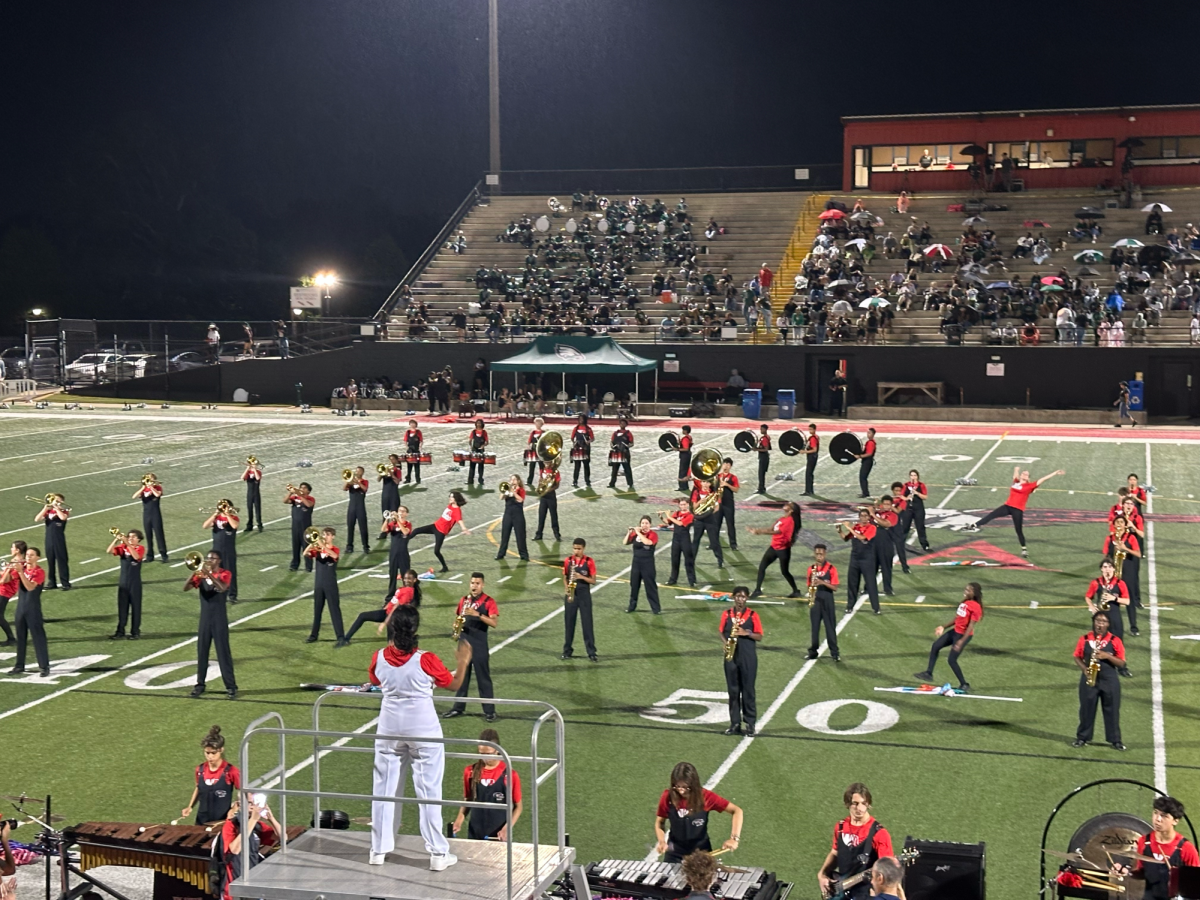We Must Confess
As students settle into life at Woodward, it can be easy to get sidetracked by the multitude of clubs, extracurricular activities, and opportunities our campus has to offer. So much so that sometimes, 24 hours in a day just do not feel like enough. As a student, understanding the importance of fostering balance is crucial. Google defines balance as “allocating sufficient time and additionally demonstrating emotional steadiness and resilience.” Utilizing your time correctly is a skill, and just like any other skill, it takes time to develop. Regardless of what grade you are in, extra reinforcement is always helpful. Woodward provides us with numerous counselors, deans and other resources to help students develop confidence in all the skills necessary for a successful academic career.
Words from Our Faculty
Teachers in the Upper School are open to helping you with study tips and habits. Graduation requirements necessitate that every student take English for four years and History for at least three years. These courses can feel like a grind at times, but they also open a chance to grow and avoid making similar mistakes. Topics like these are easy to memorize, but not so easy to retain. Dean Stephanie Stephens shared helpful tips and strategies for tackling those classes and building successful habits.
Dean Stephens has been teaching at Woodward Academy for twelve years. During her career here, she has taught government classes, and currently she also serves as the academic dean. She has observed patterns, both positive and negative, in students from 9th to 12th grade and is one of the best Upper School resources available for academic advice. She emphasizes the importance of understanding how to study and recognizing that different disciplines are approached in distinct ways.
For the Humanities, the pre-reading, reading, and post-reading strategy is one Dean Stephens finds most helpful, even if it is an overlooked one. In fact, she is not sure if students are even aware of what pre-reading is.
“If you’re doing [reading] homework, you read the directions first, and then you look in the book to see what all the headings are,” Dean Stephens said. “Then your mind is already thinking, ‘Okay, well, number one is going to be in this section.’ That’s pre-reading. It’s about getting yourself ready to read, even if that means finding a comfortable space or grabbing your favorite snack. If you do that first instead of just beginning to read, then you will actually read better than you would have before the pre-reading.”
Comprehension is the most essential part of reading. It allows you to understand and derive meaning from text rather than just memorizing information. No matter if it is an academic textbook, a book you read for pleasure or even this article, it is crucial to let the information you are reading sink in. It is the difference between recognition and grasping meaning. Comprehension is also where post-reading comes in.
“Post-reading is you [closing] the book, and trying to do the homework,” Dean Stephens said. “If you can do the homework, you’re good. If you miss something, then you open the book and go back. Pre-read, read, post-read. That’s what gets you success.”
Additional general tips and tricks from Dean Stephens include attending tutorials, asking for help and participating, in that order. These tips are also helpful for every type of class, not just humanities. After all, if you can participate in math class by explaining what you are learning to a classmate, that is a great way to ensure you have a good understanding of the material, too.
Study Strategies teacher Denise Twiss is in her 25th year of teaching, with experience in both the Lower School and the Upper School, where she currently teaches. Alongside the details of studying Dean Stephens offered, Ms. Twiss added the importance of seeing the big picture across students’ commitments.
“Balance is very important,” Ms. Twiss said. “The one thing I want all my students to do is Sunday evenings, get out your planner, look at your calendars, see, do you have lacrosse practice? Do you have a football game? Do you have cheer? Are you in colorguard? Whatever it is that you’re involved in, you also have to take that into consideration, because that is equally a part of your schedule as much as academics are.”
Words from Our Students
Another great source for improving study habits is students who are already excelling at them. A few juniors with the strongest academic reputations shared how they balance advanced coursework, athletics and a social life while maintaining straight A’s. Their perspectives reveal what it takes to succeed at the highest academic level and the steps and tactics required to achieve it.
Arun Piyasena ’27 has been at Woodward since pre-K and is widely regarded as one of the top students in his grade. He has earned straight A’s every year while taking the school’s most advanced classes and is a strong candidate for valedictorian of the Class of 2027. Beyond academics, Arun is a top-ten Varsity Cross-Country runner and an accomplished cellist. He performs with String Machine, Woodward’s most selective orchestra, and the Emory Youth Symphony Orchestra, one of the premier pre-college orchestral programs in the region. He has also competed in the Science Olympiad for three years and serves as a peer leader. Balancing all of this with an intensive course load of five APs this year, Arun is one of the best people to ask for study advice, and his advice was clear.
“Most of the time, I just review notes, and I pay attention in class,” Arun said. “That is the most important thing, I just pay attention in class.”
His emphasis on paying attention in class reveals a simple but powerful truth: studying should be about reviewing, not relearning. By focusing during lessons and taking notes in class, he avoids the need to cram later. Plus, instead of waiting until the night before, he typically begins studying “two days in advance,” making the workload more manageable and reinforcing what he already understands. His approach reveals how consistency in class can make the hours of late-night cramming unnecessary.
George Sloan ’27 is equally committed to academics and extracurriculars. Having been on the accelerated math track since eighth grade, he completed two APs in his sophomore year, along with an additional AP summer exam, and maintained straight A’s throughout his academic career. He is currently taking five APs as a junior. He is also involved in Varsity Debate, Science Olympiad, JV cross-country, and music for which he plays both the piano and trumpet. George’s approach is straightforward and reflects steady discipline, a valuable trait that has enabled him to become one of the top academic performers in his class.
“I work in quiet spaces without my phone, review early, and do not cram the night before,” George said.
Another excelling student, Taylor Lonergan ’27, serves as captain of the Varsity Girls Cross Country team while achieving straight A’s in an all-EP schedule. As a committed student-athlete with limited time, Taylor uses every minute wisely. She studies for around three hours daily and often rewrites her notes into bullet points for faster review. To make that all possible, she relies on structured routines and tutorials.
“Some of my teachers will give away what will come up on the test…,” Taylor said. “What I find best is going to see them from 8 to 8:40. The room is a lot emptier, so I can get that one-on-one time if I need it.”
Across all three interviews, one theme stood out: consistency. Each student reported studying about three hours per day during the week. The number three appeared again and again as the amount of time that worked best. On weekends, all three emphasized Sunday as their heaviest study day, often devoting four to six hours. As student-athletes, they typically rest or compete on Saturdays and then dedicate Sunday to preparing for the week ahead. Some might believe that maintaining top grades requires sacrificing the fun of an everyday teenage life or burning out from overstudying. These students prove the opposite. They demonstrate that it is possible to succeed at the highest level without compromising one’s balance.
“At the end of the day, it’s not about being perfect every single time,” Taylor said. “It’s about staying consistent, using the resources you have, and showing up for yourself every day.”




